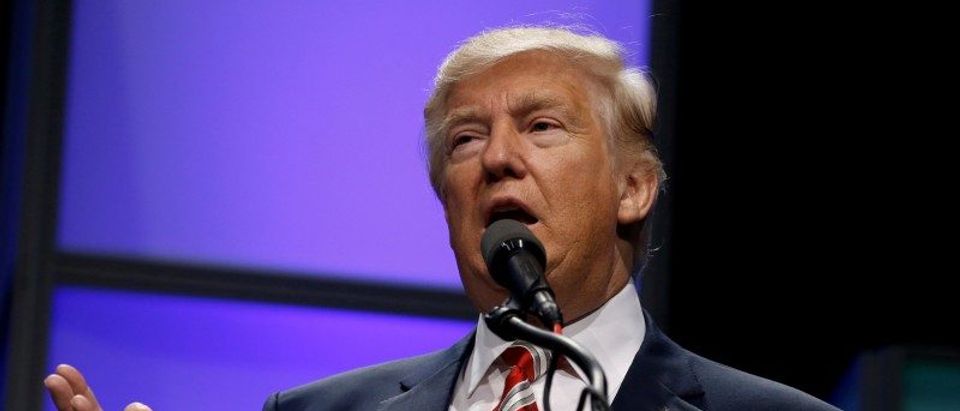Now that Donald Trump has been elected president, many argue that he is entitled to the full support of the American people. I respectfully disagree.
Throughout his campaign, Mr. Trump showed a lack of respect, if not disdain, for core tenets of the American democratic system. He openly displayed authoritarian tendencies, and attacked, among other things, freedom of the press, freedom of religion, tolerance for political dissent, and the rule of law.
History is ripe with leaders who have used democratic institutions to ultimately subvert and undermine democracy. Through his statements and actions, Mr. Trump has shown that he does not understand or respect some of the most sacred principles of American political life. He is therefore not entitled to our full support until he proves, with his actions, that he will uphold and respect the American democratic system.
During my three years in the Bush White House, I saw the dangers firsthand of those who shouted “not my president” at President Bush simply because they disagreed with his policies. And although I voted against Barack Obama in 2008, I fully and firmly supported him as my president, despite opposing many of his actions.
So yes, in normal times, Americans owe the president-elect their full respect and unconditional support. But these are not normal times, and Mr. Trump is not a normal candidate.
During his campaign, Mr. Trump blatantly attacked core foundations of the American political system. He aggressive tried to muzzle the media, threatened to sue news outlets for publishing stories, and banned journalists from covering his campaign. He threatened to jail his political opponents, encouraged his supporters to use violence to achieve political ends, and threatened to undermine the peaceful transition of power (by not accepting the election results).
Mr. Trump also proposed barring complete religions of people from entering the country, demonized and mocked minorities and the disabled, and disavowed equal protection under the law.
On the international front, Mr. Trump threatened to abandon democratic allies in favor of authoritarian regimes, and promised to withdraw from international agreements and commitments. He encouraged foreign governments to hack his political opponent, and willfully used information stolen by Russia to bolster his campaign.
Mr. Trump also violated decades of precedent by refusing to release his tax returns in order to ensure there were no conflicts of interest, and that he had properly paid his taxes. Until Mr. Trump, Americans had assumed that full and honest financial disclosure was a perquisite for holding public office – but no longer.
Given this record, Americans have good reason to assume that Mr. Trump will not operate within the traditional confines of American democracy. In some ways, a new approach to Washington would be invigorating. But only if that approach is undertaken with a full commitment to preserving our democratic system.
Over the last century, various authoritarian leaders have risen to power by using and then subverting democratic institutions. Vladimir Putin came to power through democratic means, but now rules Russia with an iron first. Hugo Chavez, Recep Erdogan, and Charles Taylor are some recent examples of leaders who have done the same.
Yes, America has more safeguards and a longer history of democracy than these countries. And yes, it is unlikely that Trump will turn into a full-blown despot. But any cracks in our democratic system would undermine 240 years of progress, and betray the millions of people who have given their lives to preserve our freedoms.
Prior to 2016, we always assumed that a dictator could never rise to power in America. But given Mr. Trump’s own words and actions, the threat no longer seems totally implausible.
Therefore, why should the privileges of a democratic society automatically be extended to a man who has openly promised to weaken or disregard aspects of the American democratic system? Doing so would be folly.
In retrospect, should Russians have given their full faith and support to Mr. Putin when he took office? What about Chavez, or Erdogan, or Taylor?
Some will argue that we must support Mr. Trump because the American people elected him. But popular opinion can often be wrong — and dangerous. Just look at the number of Americans who supported the trade barriers that led to the Great Depression, or the isolationist foreign policy that facilitated the rise of Nazi Germany.
I truly wish Mr. Trump the best, and hope that he is a successful president. I also hope that I am wrong about his intentions. Nothing would make me happier.
But until Mr. Trump proves with his actions, not his words, that he will preserve our democratic system, he will not have my unconditional support. And I hope he won’t have yours either.
David Meyers formerly worked as a staffer for George W. Bush and Mitch McConnell.


